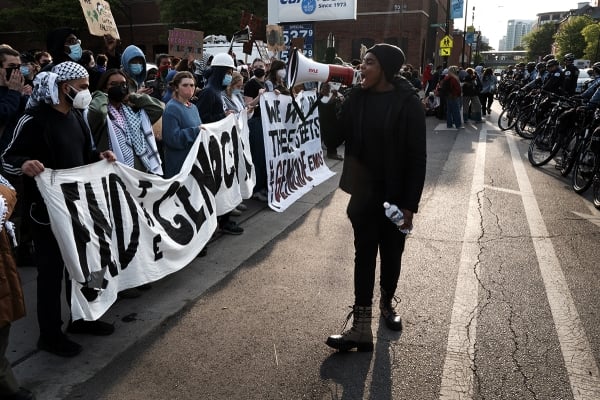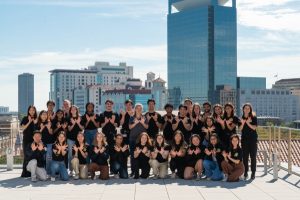DePaul University, a prestigious private university in Chicago, has recently come under fire for its decision to dismiss an adjunct professor for offering a controversial optional assignment focused on the conflict in Gaza. The adjunct, Dr. Adel Rasol, had been teaching a course on international relations when he gave students the option to analyze the ongoing conflict between Israel and Palestine as part of their coursework.
The assignment sparked backlash from some students and parents who felt it was inappropriate for a college course to touch on such a sensitive and contentious issue. In response, DePaul University swiftly terminated Dr. Rasol’s contract, citing complaints from students and concerns about the objectivity of the assignment.
While universities have a responsibility to ensure a balanced and respectful learning environment, the decision to remove Dr. Rasol from his position has raised questions about academic freedom and the limitations placed on educators when it comes to discussing controversial topics. Many argue that universities should be spaces for open dialogue and critical thinking, where students are encouraged to engage with complex and challenging issues, even if they are uncomfortable or controversial.
Dr. Rasol, who has been a dedicated educator for over a decade, maintains that his intention was to provide students with the opportunity to explore different perspectives on the conflict in Gaza and develop their critical thinking skills. He believes that his dismissal sets a dangerous precedent for academic freedom and stifles the vibrant exchange of ideas that is essential to higher education.
In response to the controversy, DePaul University has stated that they are committed to fostering a diverse and inclusive campus community, and that the decision to dismiss Dr. Rasol was based on concerns about the appropriateness of the assignment rather than any political bias. However, many students and faculty members have expressed their support for Dr. Rasol and are calling for a reevaluation of the university’s policies on academic freedom.
This incident serves as a reminder of the importance of upholding academic freedom and promoting open dialogue in higher education. As universities grapple with complex and divisive issues, it is crucial that they continue to support educators who challenge students to think critically and engage with different perspectives, even if those perspectives are controversial. Dr. Rasol’s dismissal sends a chilling message to educators who dare to broach sensitive topics in the classroom, and raises concerns about the future of academic freedom at DePaul University and beyond.



